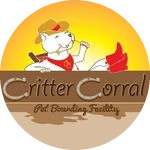Dog Treats Dangers: What Can Dogs Eat Besides Dog Food and What Cannot

Posted on September 21st, 2023.
Dogs are not just pets; they're cherished members of our families. As responsible pet owners, we go to great lengths to ensure they lead happy and healthy lives. Part of that responsibility includes understanding what we can and cannot feed our furry companions. While commercial dog food provides essential nutrients, many of us love to spoil our dogs with treats. However, it's essential to be cautious about what we offer them.
In this blog post, we'll explore the world of dog treats, including the dangers of dried chicken dog treats, the debate over jerky, and which meats are safe for your canine friend. Let's dive in.
The Dried Chicken Dog Treats Warning
Dried chicken dog treats may seem like a wholesome and tasty option for your dog, but there's a hidden danger you should be aware of. Some dried chicken treats on the market may contain harmful additives, preservatives, and artificial flavorings that can lead to health problems in your dog. It's crucial to read the labels carefully and opt for treats made from high-quality, all-natural ingredients.
What to Look for in Dried Chicken Dog Treats
- Natural Ingredients: Choose treats that list real chicken as the main ingredient, with no artificial flavors or colors.
- Limited Ingredients: Simplicity is key. The fewer ingredients, the better.
- Made in the USA: Look for treats manufactured in the United States, as they tend to have stricter quality control standards.
- Consult Your Vet: Before introducing any new treats, consult with your veterinarian to ensure they are safe for your dog's specific needs.
Is Jerky Bad for Dogs?
Jerky treats, often made from various meats, are a popular choice among dog owners. However, they have been a subject of controversy due to potential health risks. While some jerky treats are safe, others may contain harmful substances that could harm your furry friend.
- Toxic Ingredients: Some jerky treats have been found to contain toxic substances like glycerin, propylene glycol, and artificial additives.
- Potential Health Risks: Consumption of tainted jerky treats has been associated with kidney problems and gastrointestinal issues in dogs.
- Stick to Trusted Brands: Stick to reputable brands and consider making jerky treats at home using safe ingredients.
Can Dogs Have Pork Chops?
Pork chops are a delicious human dish, but can dogs have them too? The answer is a bit complex. While dogs can consume pork, there are crucial considerations to keep in mind.
Pork Chops for Dogs Dos and Don'ts
- Cooked Only: Always serve cooked pork to your dog, as raw pork can contain harmful parasites.
- Trim Fat: Remove excess fat, as it can be difficult for dogs to digest and may cause pancreatitis.
- No Seasonings: Avoid seasoning and spices, which can be harmful to dogs.
- Small Portions: Serve pork chops in small, manageable portions as an occasional treat.
Safe Meats for Dogs
Now that we've discussed some of the potential risks associated with specific treats, let's explore which meats are generally safe for dogs to consume.
- Chicken: Cooked, unseasoned chicken is a safe and lean protein source for dogs.
- Turkey: Lean, cooked turkey without bones is a good occasional treat.
- Beef: Cooked beef, such as ground beef or steak without seasoning, can be enjoyed by dogs in moderation.
- Fish: Some dogs enjoy fish like salmon and trout, which are rich in Omega-3 fatty acids.
What Can Dogs Eat Besides Dog Food?
While dog food is specially formulated to provide your canine friend with all the necessary nutrients, it's natural to want to treat them with something different from time to time. Here are some safe and healthy options to diversify your dog's diet:
Healthy Treat Alternatives
- Fruits: Dogs can enjoy fruits like apples (without seeds), bananas, and blueberries in small quantities.
- Vegetables: Carrots, green beans, and sweet potatoes make excellent, low-calorie treats.
- Plain Yogurt: It's a source of probiotics that can benefit your dog's digestive health.
- Peanut Butter: Ensure it's free from xylitol, a harmful artificial sweetener.
Conclusion
In conclusion, treating your beloved dog doesn't have to be a risky endeavor. By being mindful of the treats you choose and following some simple guidelines, you can provide your furry friend with tasty and safe rewards. Always prioritize their health and well-being.
Remember to:
- Carefully inspect treat labels for artificial additives.
- Opt for all-natural, high-quality ingredients.
- Consult your veterinarian when introducing new treats.
- Avoid feeding your dog bones, grapes, chocolate, and other known hazards.
At Critter Corral LLC, we understand the importance of keeping your pets safe and healthy. If you have any questions or concerns about your pet's diet, please don't hesitate to reach out to us at 731-676-5460 or [email protected]. Our dedicated team is here to assist you in providing the best care for your furry companion.
Contact Us
Get in Touch for Exceptional Pet Care Services
We are dedicated to providing top-notch care for your beloved pets. Please fill out the form below to get in touch with us and learn more about our exceptional pet care services.
